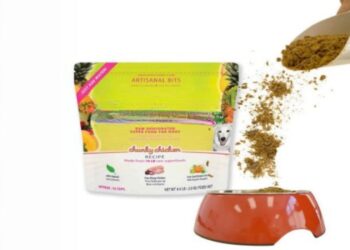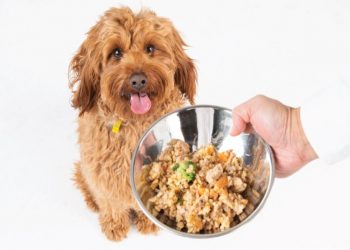As dog owners, we all want the best for our canine companions. We do our best to keep them happy and healthy, from giving them lots of love and indulging them in activities to making sure they have a cozy place to sleep. However, have you ever given their food bowl some thought?
Although a dog’s general health depends on a good diet, getting started might be difficult. That’s why we’ve put together this guide on Nourishing your Pup, with some useful tips for a healthy dog food diet. So let’s dive right in and learn how to give your dogs the best start in life through proper nutrition.
Understanding Your Dog’s Nutritional Requirements
Dogs have unique nutritional needs that are necessary to stay healthy and strong. Here’s a breakdown of the different nutrients your pup needs and the recommended proportions for each.
- Protein is essential for building and maintaining muscle, growth, development, and repair. The Association of American Feed Control Officials (AAFCO) recommends that adult dogs receive at least 18% of their diet from protein sources. In comparison, puppies should receive at least 22%.
- Fat provides energy and helps keep skin and the coat healthy.
According to the National Research Council, the recommended minimum and maximum total fat intake for a normal and healthy adult dog is 13.8g and 82.5g per 1000 kcal, respectively.
- Fiber is important for digestion and can help keep your pup regular. The AAFCO recommends that adult dogs receive at least 5% of their diet from fiber sources, while puppies should receive at least 8%.
- Carbohydrates are an important energy source, but they should make up a much smaller portion of your pup’s diet. An adult dog’s diet can contain up to 50% carbohydrates(1).
It’s important to remember that puppies have much higher energy needs than adult dogs, so they should receive puppy-specific food high in calories and nutrients. Experts at Petzyo.com.au suggest giving wet food to puppies as this is a great way to transition them from nursing to eating adult dog food.
Wet food is also gentler on the milk teeth of small pups. Senior dogs may require a lower fat and calorie diet to prevent weight gain. On the other hand, active dogs may need more protein and fat to maintain energy levels.
By understanding your pup’s nutritional needs, you can ensure they are getting the right balance of nutrients in their diet. This will help keep them happy and healthy for years to come.
Reading Suggestion: Happy Dog Food Review and Recommendations
Choosing the Right Dog Food
It would help if you considered your dog’s age and specific nutritional needs when selecting the right food. For example, puppies have different nutritional needs than adult dogs, and seniors may require specialized diets. Talk to your vet about their specific needs and which food best meets them.
Different breeds have different dietary requirements, so look for food tailored to your dog’s breed. Avoid artificial ingredients, fillers, and by-products at all costs. You should instead look for a natural food made up of vegetables, meat, fruit, and seeds, such as Nature’s Blend by Dr. Marty.
Feeding Tips for a Healthy Diet
Once you have chosen the right food for your dog, it’s now time to focus on how to feed your dog to ensure they’re getting all the nutrition they need. Here are some important tips to keep in mind:
How Much to Feed Your Dog
Determining how much to feed your dog can be tricky, as it depends on several factors, including age, weight, activity level, and overall health. A good starting point is to follow the guidelines provided on the dog food packaging. Still, keeping an eye on your dog’s weight and adjusting its food intake as needed is important.
If your dog is overweight, you may need to reduce its food intake and increase exercise to help them have a healthy weight. On the other hand, if your dog is underweight, you may need to increase its food intake to help them gain weight.
How Often to Feed Your Dog
How often you feed your dog again depends on its age, weight, and activity level. While pups and senior dogs may need three meals or fewer, most adult dogs do well with two meals daily.
To regulate your dog’s digestion, stick to a feeding plan. It will help you to keep an eye on their dietary habits and modify them as necessary.
Recommended Read: Best Dog Food For Allergies
The Importance of Portion Control
Maintaining portion control is important for ensuring that your dog gets all the nutrition they need without overfeeding. Overfeeding can lead to obesity and other health problems like joint problems, heart disease, and diabetes.
Final Words
To sum it up, it’s important to consider the age, breed, activity level, ingredients, and Pet Food Brands when selecting the best food for your dog. With the right food, you can be sure your pup gets the nutrition they need to live a long and healthy life.









